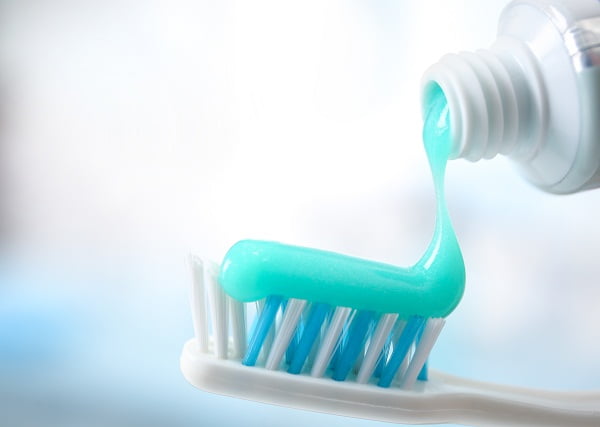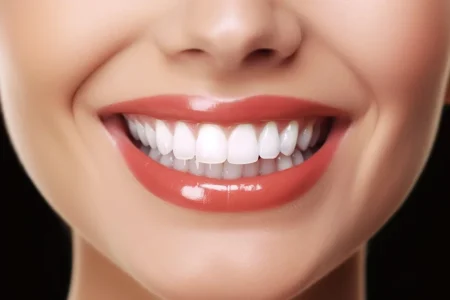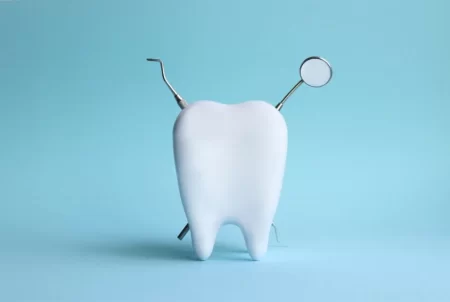What Are the Treatment Options of Tooth Sensitivity?
- Updated on: Jul 9, 2024
- 3 min Read
By
- Published on Oct 3, 2019


Tooth sensitivity treatment
Sensitive teeth are not only painful but they also affect the daily life. Tooth sensitivity is very common and can be easily treated.
The dentist usually identifies the underlying cause of the condition and treatment proceeds accordingly. Some of the measures done to treat tooth sensitivity are:
Desensitizing toothpaste
Desensitizing toothpaste helps people with the sensitivity problem. The main ingredients of this toothpaste are strontium chloride and potassium nitrate. These two compounds block the transmission of pain signals from the surface of your tooth to the inner nerves by filling the exposed tiny tunnels in the teeth, which are connected to the nerve.
Fluoride Application
Fluoride helps prevent the tooth decay by increasing the resistance capacity of the tooth so that it can resist to acid attacks from plaque bacteria and sugars in the mouth.
Fluoride is applied at the sensitive areas of the teeth. Fluoride strengthens tooth enamel and reduces the pain. A dentist can apply fluoride to the teeth as a gel, foam, or varnish.
Dental bonding
Dental bonding or tooth bonding is the process in which a tooth-colored composite resin (plastic) is applied to the tooth:
- To repair a decayed, fractured and discolored tooth
- To make teeth appear longer
- As a cosmetic alternative to fillings
- To close spaces between teeth
- To change the shape or color of teeth
- To treat the exposed root surfaces
Surgical gum graft
Gum grafts are used to cover the exposed roots. A gum tissue is taken from the palate or another source in the mouth and attached to the affected tooth root. This can be done for one tooth, several teeth or even gum line.
It reduces tooth sensitivity as the exposed roots are covered and cannot be affected to the temperature change.
Root canal
If severe pain is experienced along with sensitivity problem and other treatments are not effective enough to solve the issue, the dentist may recommend root canal treatment.
A root canal is a type of treatment to repair and save a badly damaged or infected tooth. The procedure starts by removing the damaged area of the tooth (the pulp), followed by cleaning and disinfecting it and then filling and sealing it.
The pulp is damaged by a cracked tooth, a deep cavity and repeated dental treatment to the tooth. Root canal treatment is done in four steps which are:
X-ray: X-ray of the mouth is taken to locate the possible tooth decay. Further treatment is based on the X-ray as it gives a clear idea about the accurate location of the decay.
Anesthesia: The patient is given a local anesthesia at the affected tooth.
Pulpectomy: It involves removal of the diseased tooth pulp, cleaning and disinfecting the affected part.
Filling: After cleaning, the roots are filled with gutta-percha material and sealed with the cement.
A root canal is considered as the most successful technique for eliminating tooth sensitivity.
Making a Mouth Guard
One of the main causes of tooth sensitivity is bruxism. It is the grinding of teeth while sleeping. For such situations, dentists recommend a mouth guard to be worn during the night. The mouth guard is a device for the mouth that covers the gums and the teeth.
Mouth guard reduces the pain caused by sensitive teeth as it stops the grinding of teeth.
Improving the brushing technique
Brushing technique is very important. It is the basic step of achieving a healthy oral hygiene. Right technique can prevent many oral problems and can treat many others. Since abrasive brushing is one of the causes of tooth sensitivity, improving brushing technique is essential to ensure the health of teeth.
Some brushing tips are given below:
- Brush softly, and twice a day at least
- Buy a new, soft-bristled toothbrush after three to four months of using it
- Clean your teeth every time you eat. Cleaning may include gentle brushing, flossing or simply swishing water around in the mouth for a few seconds
- Place your toothbrush bristles at a 45-degree angle to the gum line
- Brush every part including all inner and outer tooth surfaces, using short and circular strokes
- Brush your tongue, as oral bacteria are found at the end of the tooth as well
Avoid tobacco
Smoking increases the risk of mouth pain, cavities and gum recession. Avoiding it can decrease the likelihood of these conditions and thus it can be helpful in treating tooth sensitivity.











